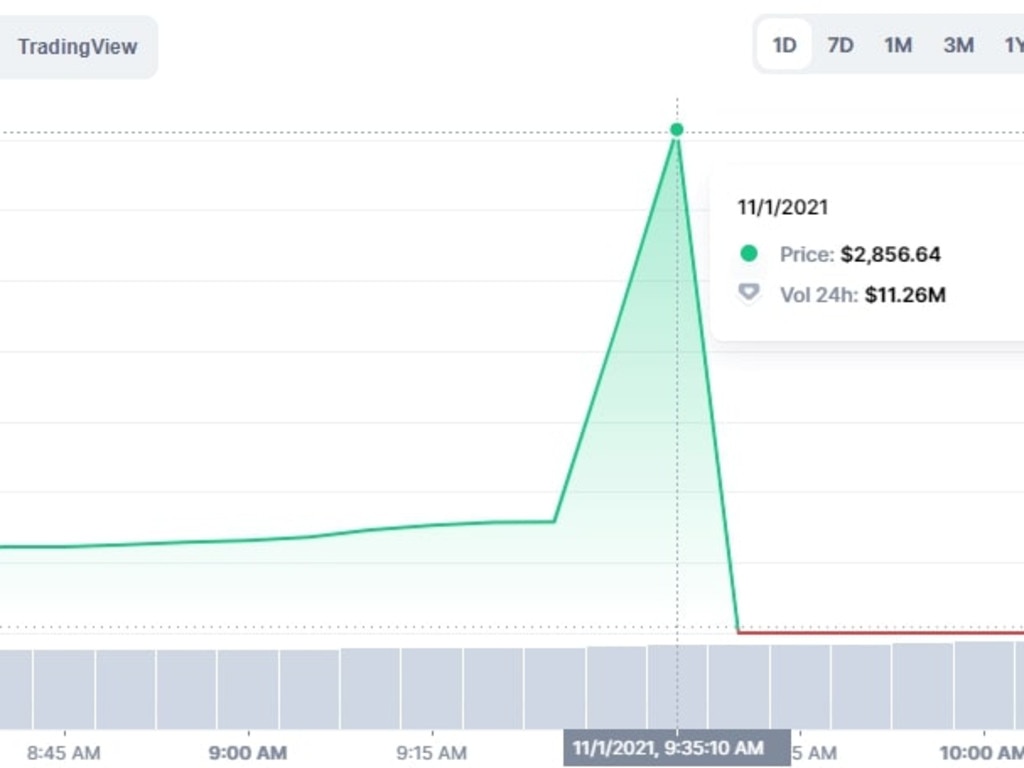Scammers behind $SQUID coin disappear with $4.3 million in ‘invested’ cash
Scammers have pulled away with a gigantic haul, conning untold thousands of investors in a crypto scam bordering on insanity.

Cryptocurrency scammers have made off with approximately A$4.38 million after setting up a fake currency playing off the popularity of Netflix’s hit show Squid Game.
The TV series took the world by storm in October, becoming the streaming service’s fastest growing show to date. The suddenly inescapable phenomenon immediately took over the internet, with installations dedicated to the dystopian series emerging across the globe and memes populating every corner of the web. Hell, even sales of the basic white Vans slip-ons the actors wore skyrocketed.
Such was the immediate hype, it was only a matter of time before cryptocurrency got involved.
Billed as a “play-to-earn” cryptocurrency, $SQUID allowed people to buy tokens to play in online games and potentially grow their wealth.
The initial success of the digital asset was alarming.
On Tuesday last week, the coin was trading at $0.01235, mere days after launching. By midafternoon Friday, it was trading at $11.16 - a surge of 90,264 per cent. Its (self-reported) market capitalisation was nearly $5 billion.
The coin’s (now deactivated) website was littered with poor grammar and spelling errors, encouraging new buyers to participate. Its official Twitter page was no different, posting regular updates about how the creators “values (sic) your trust and love”.
The biggest red flag -- the fact there was no option to sell -- was glaring from the outset, yet investors were still keen to throw their hard-earned at the bootleg asset.
Crypto experts across the globe rushed to warn potential investors away from the “asset”, which had no discernible ties to the actual Netflix franchise.
In a twist Stevie Wonder could see coming, the elusive architects behind the rising $SQUID coin hit the kill-switch on Monday, leaving untold thousands of hopeful millionaires stranded. The technique, described in the crypto world as “rug-pulling”, saw the owners cash out their tokens for real-world money once the price hit around $3,783 per coin.
The price now sits at $0.008337 per coin.

“Based on wallet activity, it’s alleged that the developers of the game walked away with millions of untraceable BNB after using Tornado Cash – a site used to privatise and hide transactions on the blockchain – to ‘clean’ the stolen funds,” Coin Rivet’s Sean Dickens said.
The sudden explosion should raise alarm for those looking to jump in on cryptocurrency trends. The overnight success of $SQUID points to an infatuation of hype culture, where “flavour of the month” trends can be easily capitalised on by savvy scammers.
Within barely a week, anonymous crypto hustlers were able to trick the public into growing a completely useless asset into their own personal retirement funds.
With zero option to cash out, the scam should have been clear as day. The invested money was never “going anywhere”,
“We have received multiple reports that users are not able to sell this token in Pancakeswap,” CoinMarketCap warned on Friday.

“Please do your own due diligence and exercise caution while trading! This project, while clearly inspired by the Netflix show of the same name, is unlikely to be affiliated with the official IP.”
CoinMarketCap’s rival platform, CoinGecko, said the coin was “most likely a scam”.
“This token did not meet our listing criteria hence it will not be listed on CoinGecko. It’s most likely a scam,” CoinGecko co-founder Bobby Ong told Cointelegraph.
“You can put real money into the cryptocurrency, but there’s no evidence you can ever take it out. That’s simply known as theft,” he wrote.
“Other red flags include the fact that the Telegram channel set up by whoever’s behind this scam isn’t open to comments from outsiders. And even the Twitter account makes it impossible for regular people to reply to posts.”
Always take note of the fineprint. Or at least the spelling errors.





